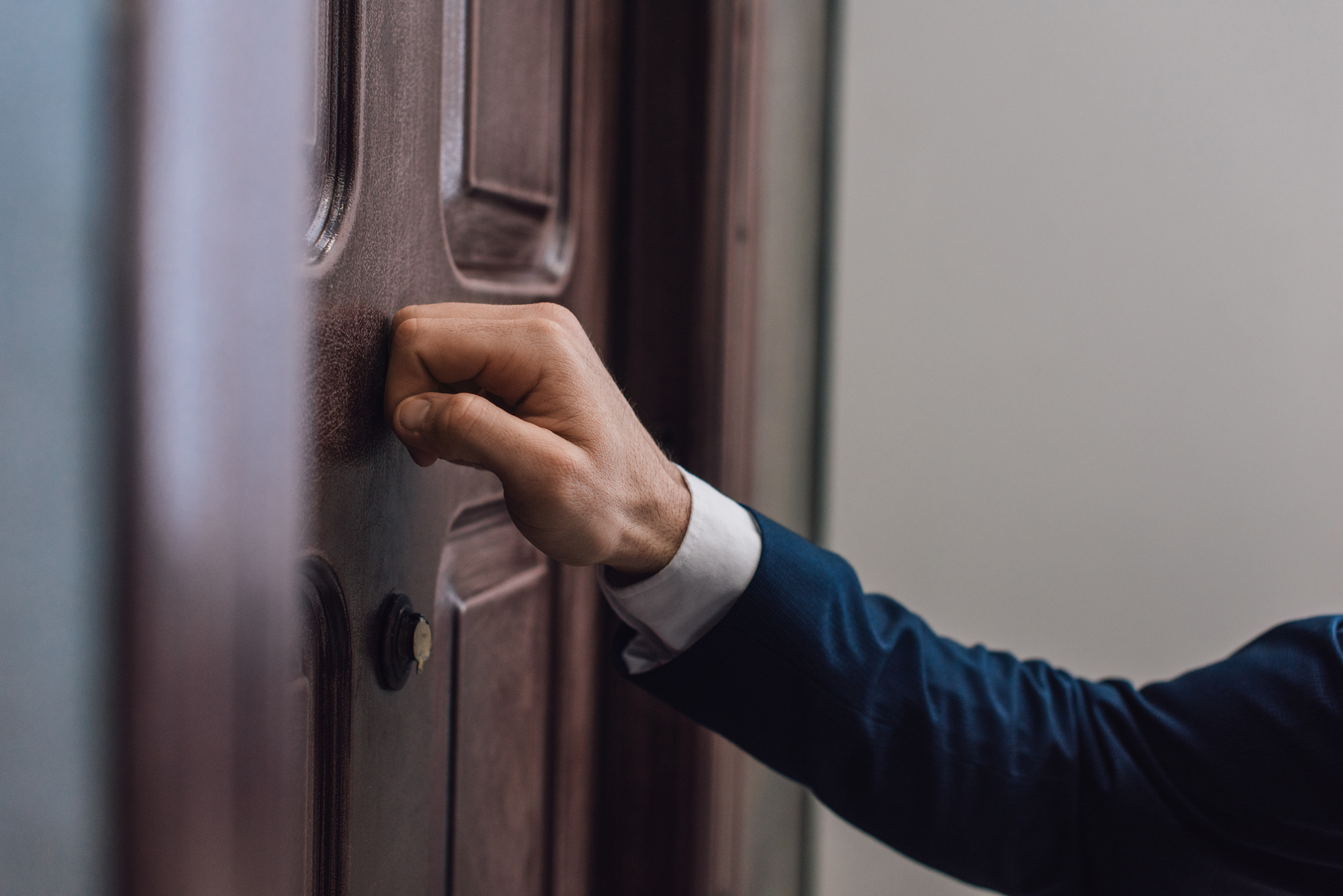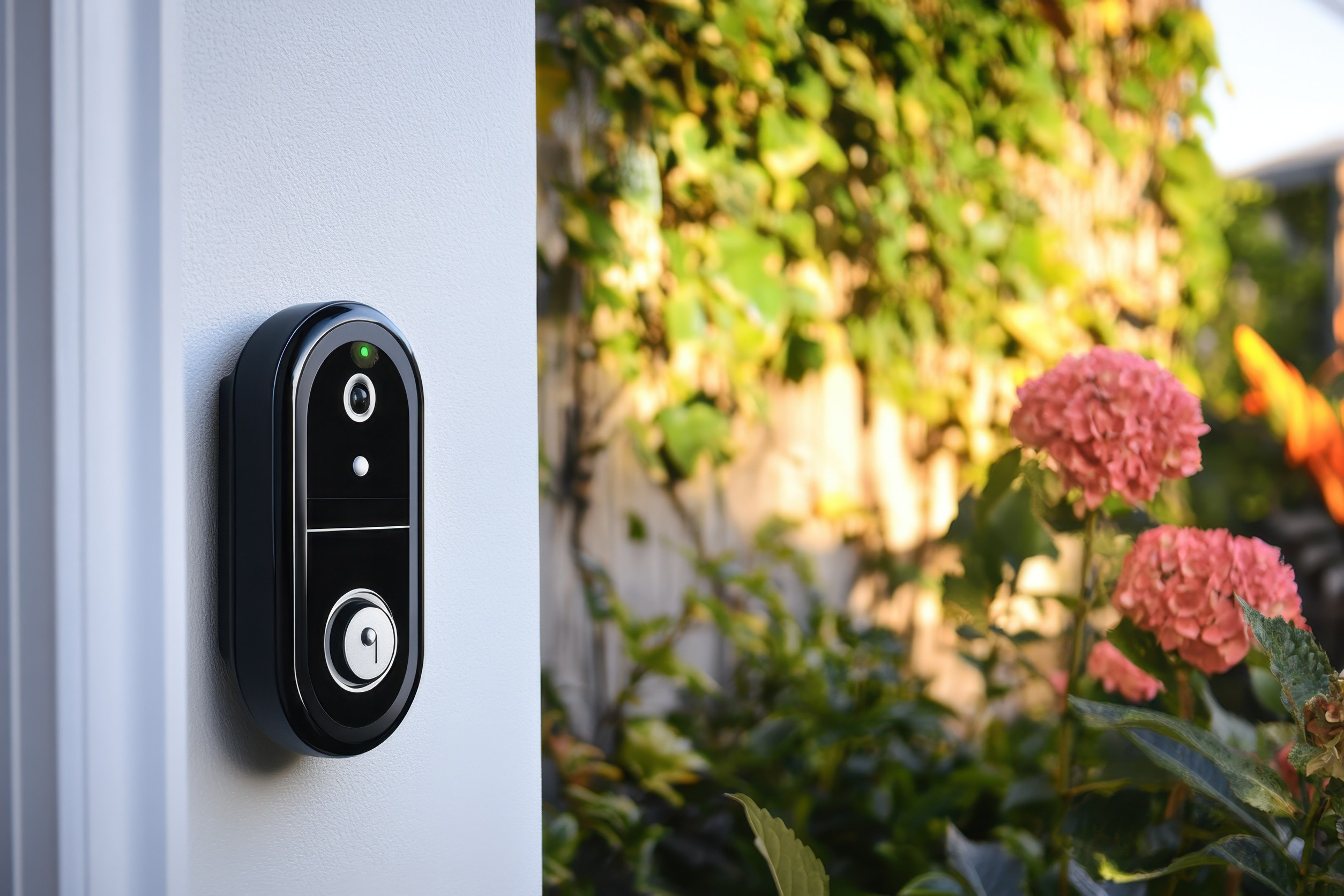There’s something unsettling about the doorbell ringing unexpectedly. Your first instinct might be to answer immediately, out of habit or curiosity. But in today’s world, it’s more important than ever to pause and think twice before opening that door.
Whether it’s a stranger, a scam, or something more sinister, blindly greeting whoever’s outside can come with consequences.
1. You Don’t Know Who’s on the Other Side
We tend to trust the familiarity of our homes, assuming everyone who knocks or rings the doorbell has good intentions. But the truth is, unless you’re expecting someone, you have no idea who’s really standing outside.
Criminals often exploit this blind trust by posing as delivery drivers, utility workers, or even neighbors in distress. A door can be the only barrier between you and someone with bad intentions. Taking a moment to verify who’s there can make all the difference in your safety.
2. Scammers Rely on Catching You Off Guard
Many scams begin with a simple ring of the doorbell. Scammers count on surprising you, making you more vulnerable to manipulation or pressure. They might offer fake home repair services, sell counterfeit products, or claim to be collecting donations for a nonexistent charity. Often, their goal is to get personal information, gain access to your home, or pressure you into giving money on the spot. If you open the door without a second thought, you give them the opportunity they’re looking for.
3. It Could Be a Distraction for Something Else
Sometimes, the person ringing your doorbell isn’t the only one involved. Thieves often work in pairs or groups, with one person distracting you at the front while others sneak around to the back. This is especially common during the day when people are home alone and less likely to expect a coordinated effort. You may be engaged in conversation or even lured outside, giving others a window to break in or search for unlocked doors. Being cautious helps prevent falling for these classic diversion tactics.
4. Opening the Door Can Signal Vulnerability
When you immediately open the door without checking, it can unintentionally signal that you’re alone, unaware, or unprepared. This can make you appear more vulnerable to someone with bad intentions.
Even something as simple as stepping outside to talk can be interpreted as an opportunity for someone to force their way in. Maintaining that physical boundary until you’re certain about the visitor’s identity can help keep you in control. It’s about protecting your space and yourself from being perceived as an easy target.
5. Technology Gives You Safer Options
There’s no need to open the door just to see who’s there anymore. Video doorbells, peepholes, and intercom systems let you see and speak to visitors without ever unlocking the door. These tools offer a safer, more informed way to handle unexpected visitors, especially when you’re home alone.
If someone has legitimate business, they’ll understand your caution and be willing to communicate through the device. Technology offers peace of mind and a layer of protection that wasn’t available in the past—use it to your advantage.
6. Children or Teens Might Copy Your Behavior
If kids or teens in the household see you rushing to open the door every time it rings, they’re likely to imitate that behavior. The problem is, they may not have the same instincts or judgment to recognize danger. This can put them at risk if they open the door to a stranger while you’re not around. Teaching them to be cautious starts with modeling that behavior yourself. It’s a simple act that sets a precedent for their safety and awareness in the future.
7. Your Gut Feeling Is There for a Reason
That uneasy feeling when the doorbell rings unexpectedly? It’s not paranoia—it’s instinct. Our instincts have evolved to protect us, and sometimes they pick up on subtle things our conscious mind might overlook.
Maybe it’s the timing, the body language of the person outside, or just something that doesn’t sit right. Listening to that gut feeling, rather than brushing it off, can prevent uncomfortable or even dangerous situations. Trusting your instincts is one of the best safety tools you have.
Stay Smart, Stay Safe
While it might feel overly cautious to hesitate before answering the door, it’s actually a smart and necessary habit. Safety should always take precedence over politeness or curiosity. By pausing, assessing, and using the tools available to you, you take control of your home and your personal safety. There’s no harm in being cautious—only in being careless.
Have you ever had a strange experience with an unexpected visitor? Or do you have your own safety tips when someone rings the doorbell?
Read More
Why Teen Safety Isn’t Just Stranger Danger Anymore
Never Say These 8 Things at the Front Door (If You Want to Protect Your Home)



Leave a Reply